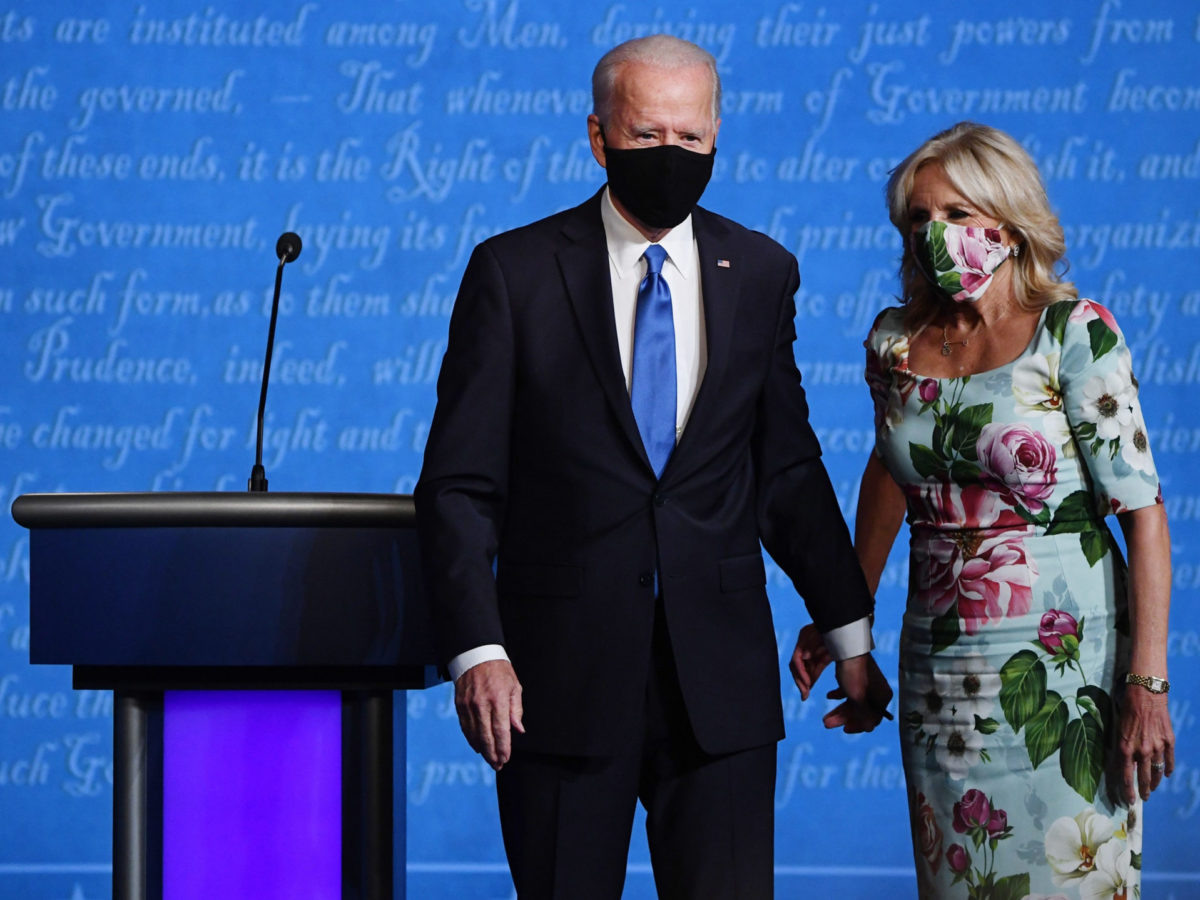

Barely two minutes into his victory speech Saturday, President-elect Joe Biden said, “I’m Jill’s husband” and described her as a mom and an educator. Dr. Jill Biden has said she plans to continue teaching English at Northern Virginia Community College.
“She has dedicated her life to education,” said the president-elect. “But teaching isn’t just what she does. It’s who she is. For American educators, this is a great day for y’all. You’re going to have one of your own in the White House.”
The passage fit the larger purpose of the speech — to define his leadership style and an overarching goal to shift from a divisive, norm-breaking administration to a presidency that defends democracy and restores decency. Aside from announcing the formation of a COVID-19 response task force, Biden did not delineate his agenda on education or any other policy issue. Still, his declaration of a “great day” for educators sent a signal about his priorities.
As a candidate, Biden campaigned on an expansive education platform. In contrast to the Trump administration’s efforts to cut funding for traditional public schools and to provide financial assistance for private school students, Biden proposed an array of federal initiatives along the continuum from pre-K through high school.
The Biden platform would supplement teacher pay by increasing Title I funding from $15 billion to $47 billion. Title I is the long-standing federal program of assistance to states and communities to bolster schools serving students of lower-income households.
Biden has called for doubling the corps of psychologists, nurses, and counselors in schools. His platform would expand “community schools” that serve as hubs for so-called wrap-around services to address nutrition, housing, and mental health. To create pathways to jobs, the Biden platform would extend the Pell Grant program to assist high school students’ move into community colleges. Biden would eliminate federal aid to for-profit charter schools, and hold nonprofit charters accountable for educational outcomes.
At a cost of $775 billion over 10 years, according to the Biden platform, the nation could provide family supports and pre-K for all 3- and 4-year-olds. His “universal pre-K” proposal came packaged with assistance for caregivers for ill and elderly family members.
In several ways, the Biden platform aligns with the recommendations of Gov. Roy Cooper’s commission on education — especially in attracting more highly qualified teachers and in expanding early childhood enrichment. Similarly, Biden and Cooper face parallel challenges in overcoming political and fiscal impediments to advancing their public education agendas.
Biden and Cooper, both Democrats, won their elections last week without a “blue wave” sweeping through Congress and the General Assembly. Cooper again faces Republican majorities in the state House and Senate. Biden’s ability to move his legislative agenda hangs on the outcome of two runoffs in Georgia to determine control of the U.S. Senate.
Both have to govern in the midst of twin public health and economic crises that rip through state and federal budgets. What’s more, major state and federal tax cuts tilted toward the affluent and corporations over the past decade have eroded revenues. Biden has proposed financing his education initiatives by rolling back tax breaks that favor the wealthy. Cooper has opposed further tax cuts while refraining from advocating a tax increase plan akin to Biden’s.
Because the federal government can take on debt while the state must adhere to a balanced budget, an emergency national aid package, without a tax increase, represents a critical step in pursuing an education agenda. With interest rates negligible, the federal government can finance debt at little cost. Biden has proposed federal assistance in purchasing plexiglass shields, in modernizing ventilation, and in hiring more teachers to allow for smaller classes.
With coronavirus surging as winter approaches, Biden has made COVID-19 control his first order of business. Without citizens adhering to COVID-19 control measures, the economy can’t fully function — nor can public education.




